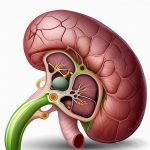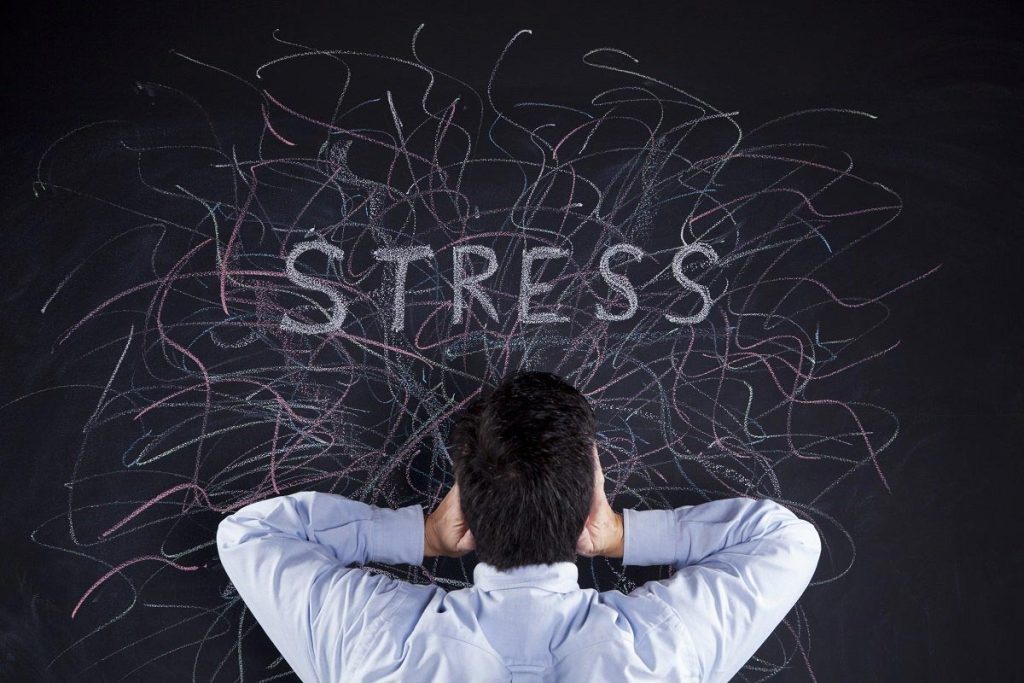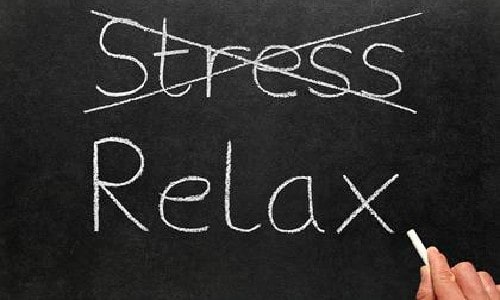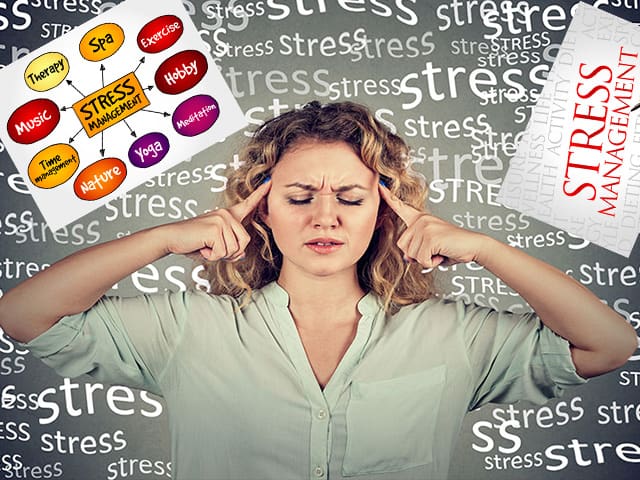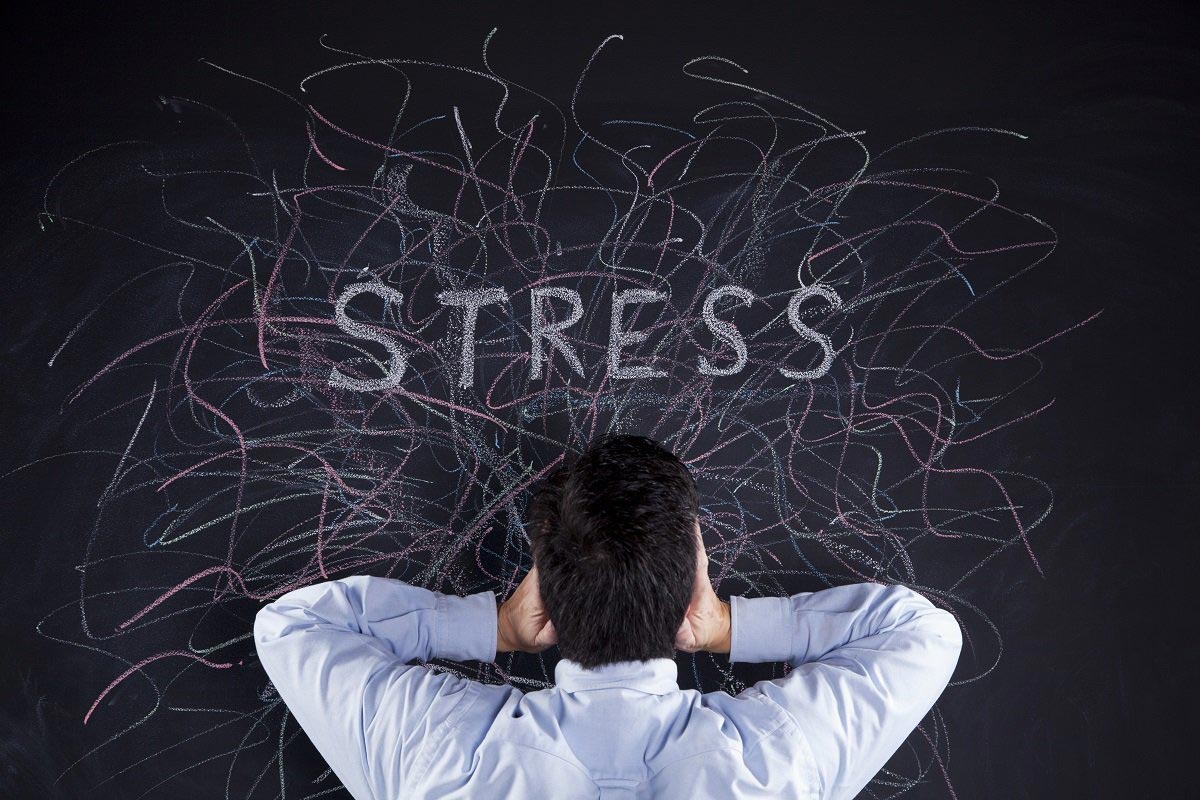stress management techniques
- Exercise regularly.
- Eat well and consume healthy foods.
- Cultivate a positive and imaginative mindset.
- Be present in the moment. Be open to criticism.
- Practice daily meditation without fail.
- Learn to relax in tough situations. Let go of things beyond your control.
- Be prepared for specific circumstances.
- Engage in conversations with suitable individuals.
- Stay realistic.
- Learn to say no.
- Don’t forget a positive outlook and always see the glass as half full.
- Read more books and engage in deeper thinking.
stress management definition
Stress refers to pressure and, in psychological terms, it can be described as an internal feeling of tension caused by an external or internal pressure factor. When pressure is exerted on an individual, a reaction occurs that may manifest as physical, mental, or social symptoms. This nonspecific reaction to stress and anxiety is referred to as stress and anxiety. Get more familiar with stress and anxiety management methods!
Although stress is often beneficial and enhances physical and mental performance, leading to more alert and goal-oriented behavior, which is referred to as pleasant or positive stress. However, excessive stress can have numerous consequences such as decreased efficiency, internal tension, sadness, anxiety, depression, physical and mental disorders, sleep disturbances, forgetfulness, decreased bodily resistance, and susceptibility to recurrent infections, headaches, etc., leading to unpleasant or negative stress. It is worth noting that stress is actually our body’s response to the environment, often resulting from specific events. The causes of stressors are variable among individuals. Our body’s response to stressors occurs through the secretion of certain chemicals – hormones – inducing a state known as fight or flight. However, anxiety is a term commonly used in everyday life to describe situations and feelings such as exam anxiety, public speaking anxiety, etc.
Follow more topics and articles on this page
stress management skills
1- Having a Plan and Managing It
Feeling the presence of a plan, proper control, and management are essential parts of controlling and reducing anxiety. Learning methods of managing responsibilities, staying focused on goals, taking breaks, and implementing relaxation techniques are among time management skills.
2- Goal Setting
Try to select a single goal for yourself that improves your mood and reduces your anxiety.
3- Avoiding Procrastination
Delaying responsibilities and tasks until the last minutes can create more anxiety than completing them on time. Procrastination can directly affect the quality of work, sleep, and mood.
4- Ensuring Good Sleep
Practicing good sleep habits can indicate that you have rested well. Sleep deprivation can lead to physical and mental problems and increased anxiety.
5- Limiting Stimulants
Limit or stop consuming stimulants like caffeine, which can cause or intensify anxiety.
6- Relaxation
Allocate time for relaxation and productive activities during your day. Take walks during breaks, study, or work in open spaces, listen to music, etc., to relax your mind.
7- Daily Note-taking
Start writing daily notes. Many people find writing daily notes to be an effective way to control anxiety, understand emotions, make decisions, etc.
8- Embracing Limitations
Understand that everyone faces various limitations in life. Learn to accept life’s limitations and adjust your expectations of yourself and others accordingly.
9- Leisure Time Planning
Plan your leisure time. Inject humor into your life. Laughing can be the best way to reduce tension.
10- Efforts to Control Stress
Try to seek help from friends and family to distance yourself from anxiety. Make sure not to focus solely on negative experiences. Try to think about three positive things that have happened in your life and share them with others.
what are the five stress management techniques
1. Focus on the good feelings first
2. Pay attention to what thoughts and desires enter your mental space
3. Plan for fun
4. Eat something to deal with stress
5. Get rid of bad night habits
critical incident stress management
What is CISM?
Critical Incident Stress Management (CISM) is a type of crisis intervention designed to support those who have experienced traumatic events. It can be implemented with individuals, families, groups, organizations, and communities and aims to:
- Reduce the impact of critical incidents
- Normalize instinctive reactions to the incident
- Encourage natural recovery processes
- Restore adaptive functioning skills for individuals and/or groups
- Identify the need for additional supportive services or treatment.
benefits of stress management
Benefits of Stress Management
If someone is able to manage stress, they can mitigate the effects of excessive stress and rid themselves of its burdens. Some benefits of stress management include:
- Better sleep patterns
- Weight control
- Health and disease prevention
- Improved mood and happiness
- Time and schedule management
- Better performance in tasks
- Improved relationships with family and friends.
importance of stress management
Stress management and reduction are crucial and can have a significant impact on your physical and mental health. Stress affects emotional balance, physical health, cognitive function, and social relationships. Therefore, managing stress is vital.
Stress can lead to anxiety, increased blood pressure, sleep disorders, weakened immune system, digestive disorders, increased risk of heart disease, and increased risk of depression and anxiety. Therefore, the importance of stress management in maintaining overall health is evident.
Below are some strategies for stress management:
- Recognizing stress symptoms: The first step in controlling stress is recognizing its symptoms. By identifying stress symptoms in yourself, you can plan appropriate strategies to cope with it.
- Regular physical activity: Regular exercise and physical activity can help reduce stress and improve your mood. Exercises like walking, cycling, yoga, and breathing exercises can be beneficial.
- Adequate sleep and rest: Sufficient sleep and rest are crucial for stress management. Try to sleep for at least 7-8 hours daily and allocate time for rest and relaxation.
- Healthy eating: Proper and balanced nutrition with sufficient intake of essential nutrients can help your body cope with stress. Consuming fruits, vegetables, whole grains, fish, nuts, and nutrient-rich foods can be helpful.
- Practicing relaxation techniques: Deep breathing, meditation, yoga, and relaxation exercises can help reduce stress and promote relaxation.
- Time management: In stress management, it’s important to note that there is no one-size-fits-all approach. It’s better to try different methods and techniques and see which ones are more effective for you.











